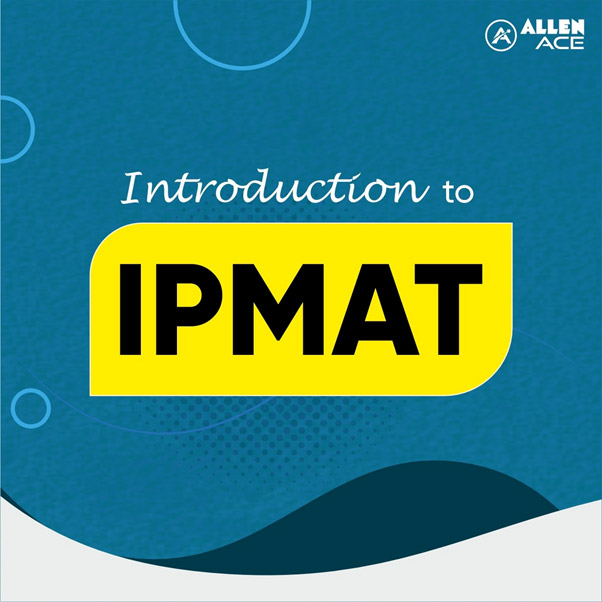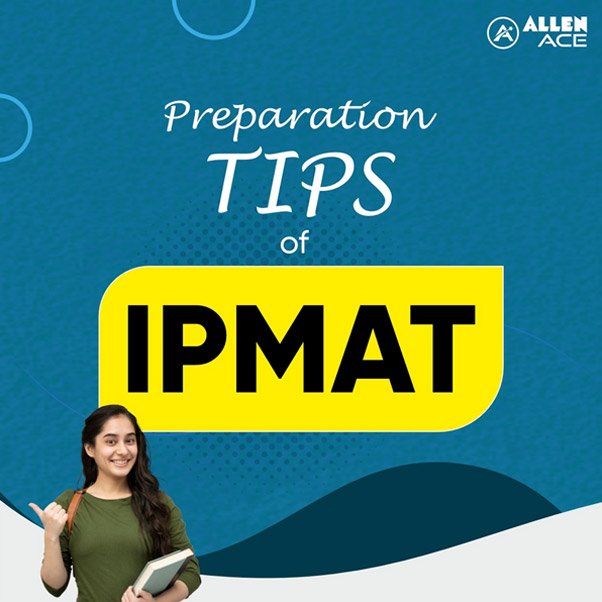Our Blogs

IPMAT Introduction
IPMAT is the Integrated Programme in Management Aptitude Test. Various institutes conduct their own IPMAT to admit students in their 5-year Integrated Programme in Management.
IIM Indore conducts its own IPMAT, IIM Ranchi accepts IPMAT Indore scores and SAT scores, IIM Rohtak conducts it own IPMAT and IIM Bodh Gaya and Jammu together conduct an examination called JIPMAT.
Each exam broadly tests the test takers' Comprehension and Aptitude across three sections. IPMAT Indore has 2 sections to test Quantitative Ability - a section on MCQs and another on Short Answers, and a section of Verbal Ability and Reading Comprehension.IIM Rohtak IPMAT has a slightly different exam pattern, where in, it tests the aspirants on Data Interpretation and Logical Reasoning in a separate section along with one section each on Reading Comprehension and Verbal Ability, and Quantitative Ability.

Life at IIM Indore
With the advent of the morning light, comes the quiet and insistent chirping of the birds and we open our eyes to the peaceful and lush surroundings that make up IIM Indore. Away from the noise and pollution of the city, the institute is a haven of fresh air, unwinding roads and calm surroundings; until that calm is broken by the panic stricken cries of the students who have to meet unimaginable deadlines on any given day. In that moment of sheer chaos, when the queues for the printer are interminable, and the calls to the professor to extend the deadline incessant, the peace and quiet of the place become irrelevant.
Life at the IIM Indore campus may be hectic, frenetic, downright hair-splittingly tiring but it is never dull. Between the many assignments, classes, positions of responsibility, committees, activity and interest clubs we are gainfully (or otherwise) employed on a regular basis. Since it is a completely residential campus, with accommodation for all the participants of the courses, it creates camaraderie and long-term friendships. The flip side of this, however, cannot be ignored. As the students live on campus, we have classes till and at ungodly hours, midnight sessions and exams, and constant pressure to deliver. In all of this, the one constant that remains is that the campus never sleeps.
At the same time, participants also engage in things that normal students do such as enjoying sports, an activity that is facilitated by courts for various sports and a fully equipped sports complex. Birthday celebrations have become iconic on campus with more people than can be counted involved in wishing the birthday boy. The celebration of culturally diverse festivals, late-night partying, going out to the city in droves, long rides on highways around the lovely campus and drives to nearby destinations, among other things, make up the collage of life on campus.
A Typical Day
The classes begin at the early hour of 8:45 AM and all are expected to be punctual since there is a premium to be paid for tardiness. As a result, there is a mad scramble in the mess as well as on the way up to the academic block. Not only does one have to be on time, but also be prepared for class by having studied the readings that have been circulated in advance. The 75-minute long sessions, punctuated by 15 minute tea breaks occupy most of our days. However, the arrival of the evening signals the beginning of the more pleasurable activities on campus right from playing a sport of your choice, to leisurely walks around campus and to visiting the city and the many eating joints using the institute bus.
One of the most distinctive features of the campus is that students run most of the things. The Students’ Activities Council (SAC) is the channel through which the student body carries out most of its endeavours. Elected by the participants each year, the SAC is the source of administration, merrymaking and entertainment. The Cultural Committee, known as the CulCom, organizes all the celebrations, dinners, bonfires, parties, antaksharis, dumb charades and many other activities. The student body also runs its very own shop known as the PI shop, which caters to the daily needs of the students. Not only does it stock basic groceries, it also provides hands-on experience on running a business – a true learning experience as far as management is concerned. In addition, the students run a fast food and juice joint called Juices and More, more commonly known as JAM. Known for its freshly prepared juices and fast food, JAM is also the place where most of us meet up in the evenings, have conversations, watch cricket matches and generally relax.
Most importantly, life at IIM Indore is an exhilarating and unexpected ride. Each and every member of the student community adds his/her own flavour and spin to this place. With so many people, the campus then becomes a veritable cosmos of myriad hues.

Preparation TIPS of IPMAT
Preparing for the IPMAT (Integrated Program in Management Aptitude Test) requires a systematic approach and dedicated effort. Here's a comprehensive guide to help you prepare effectively:
Understand the Syllabus: Obtain a detailed syllabus from the official IPMAT website or any reliable source. Understand the topics and sub-topics thoroughly to plan your study schedule.
Create a Study Plan: Design a well-structured study plan considering the time left before the exam. Allocate more time to challenging subjects or topics that require extra attention. Ensure to include breaks and revision time in your plan.
Practice Time Management: The IPMAT has a specific time limit, so practicing time management is crucial. Solve previous years' question papers and take mock tests regularly to enhance your speed and accuracy.
Strengthen Quantitative Skills: IPMAT places significant emphasis on quantitative aptitude. Strengthen your mathematical concepts by practicing regularly. Focus on topics like arithmetic, algebra, geometry, and data interpretation.
Enhance Logical Reasoning: Dedicate time to enhance your logical reasoning skills. Solve puzzles, practice analytical and critical reasoning exercises, and familiarize yourself with different types of logical problems.
Improve Verbal Ability: Focus on improving your vocabulary, comprehension skills, and grammar. Read newspapers, magazines, and good quality articles to enhance your reading comprehension and language skills.
Stay Updated: Keep yourself updated with current affairs and general knowledge. Follow reliable news sources, magazines, and online portals to stay informed about recent events and developments.
Seek Guidance: Consider joining coaching classes or online preparation courses if you feel the need for expert guidance. Interact with mentors or experienced professionals to gain insights and tips for effective preparation.
Regular Revision: Regularly revise all the topics you have covered to reinforce your understanding. Make concise notes of important formulas, concepts, and key points for quick revision before the exam.
Stay Calm and Confident: Maintain a positive attitude and stay confident throughout your preparation journey. Believe in your abilities and stay calm during the exam. Manage your stress effectively through meditation, exercise, or other relaxation techniques.
Analyze Mock Tests: After taking mock tests, analyse your performance thoroughly. Identify your strengths and weaknesses and work on improving your weaker areas. Keep track of your progress and make necessary adjustments to your study plan.
Stay Healthy: Maintain a healthy lifestyle by eating nutritious food, getting enough sleep, and exercising regularly. A healthy body and mind are crucial for effective and efficient exam preparation.
Remember that consistent and focused preparation, along with a positive mindset, is key to performing well in the IPMAT. Best of luck with your preparation!

